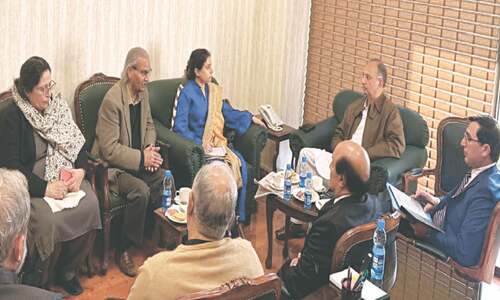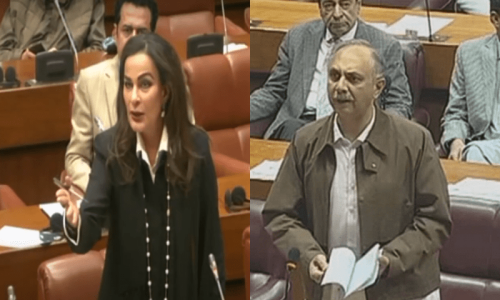HYDERABAD, Jan 6: The Sindh Abadgar Board, a farmers’ organisation, has observed that due to delay in sugarcane crushing season, growers in the province have suffered Rs27.5 billion loss only in two major crops viz; cotton and rice and will not be able to cultivate wheat on 300,000 acres of land.
A board meeting, presided over by its leader Abdul Majeed Nizamani, criticised the Pakistan Sugar Mills Association for defying government directive to start the crushing season on time and held the PSMA and the government responsible for the losses inflicted on the growers.
It held the government squarely responsible for political and economic crisis, lawlessness, skyrocketing prices of consumers goods and said that government and PSMA were responsible for the economic and agricultural destruction of Sindh.
The meeting demanded that it was high time the sugar mills stopped black-mailing the government by giving wrong statistics and lame excuses. It demanded that the sugar mill owners should pay Rs67 per 40kg of sugarcane to the growers as notified by the government.
It argued that when the growers of Punjab and NWFP were being paid Rs60 and Rs58 per 40kg respectively, there was no reason why the growers of Sindh should not be paid much more price as Sindh cane was of superior quality and its sucrose recovery was much more than the sugarcane produced in Punjab and NWFP.
It sounded a warning that if the sugar mills of Sindh did not honour the notification of the government and stopped excesses against the growers, the cultivation of sugarcane in Sindh would be seriously effected which may prove suicidal for the sugar mills.
Not only this but the national economy will also receive a tremendous setback as, during the year 2009-10, the government will have to import sugar to the tune of Rs50 billion, the meeting observed.
The meeting its surprise that on the one hand wheat flour was being sold at the rate of Rs50 per kg and on the other, a ban was slapped on the sale of phosphatic fertiliser which would destroy the wheat crop.
It wondered why the sale of this particular fertiliser had been banned when enough quantity of fertiliser has been stocked. If the country is to be saved from famine, DAP should be made available at the subsidised rate of 50 per cent. It expressed grave concern over the serious wheat crisis that had gripped the country despite the government’s claim of bumper crop of 23.6 million tones of wheat.
It demanded a detailed inquiry to determine actual production and also an inquiry as to how 700,000 tons of wheat, according to official figures, was exported at the rate of 170 to 210 dollars per ton and how one million tons of wheat was imported at the rate of 444 to 527 dollars per ton.














































Dear visitor, the comments section is undergoing an overhaul and will return soon.